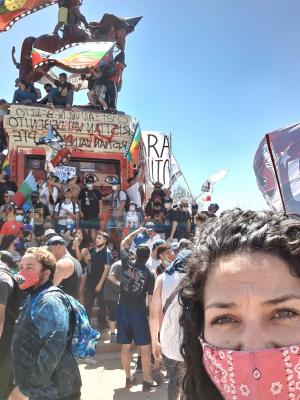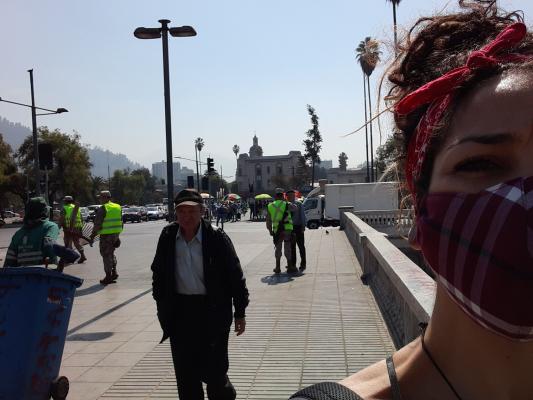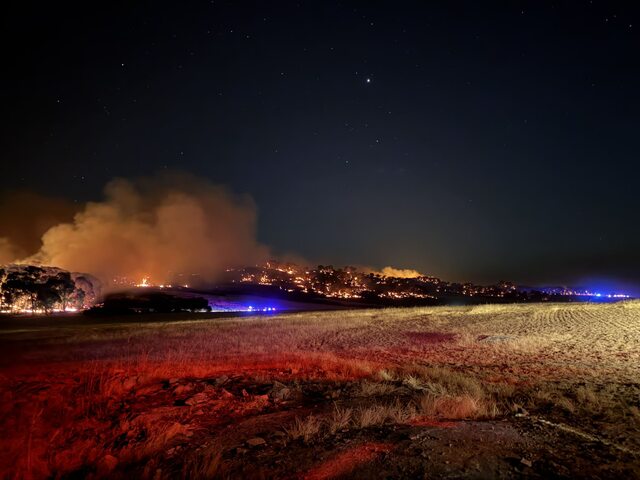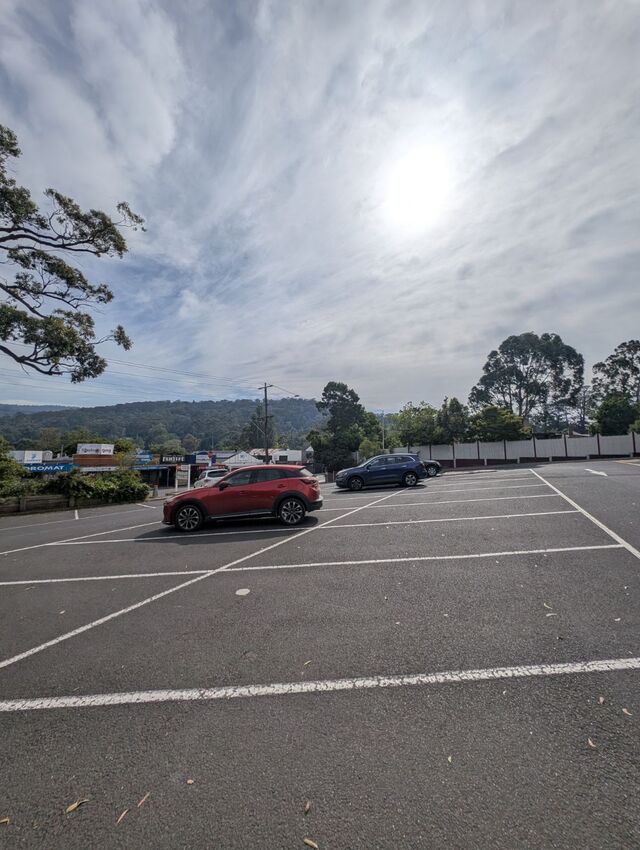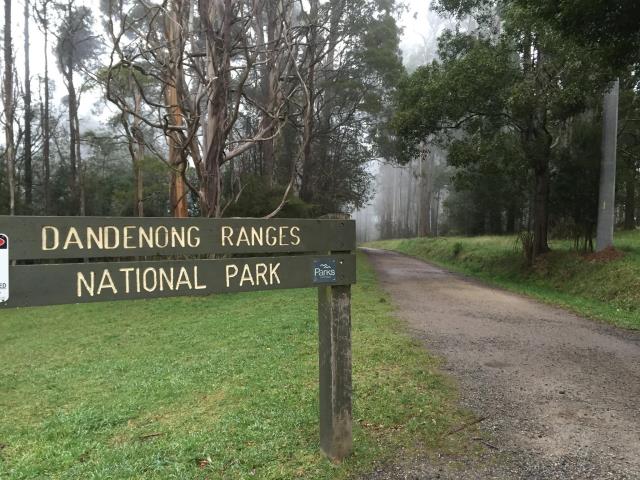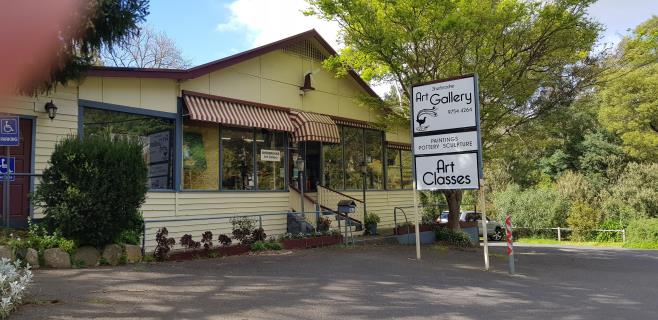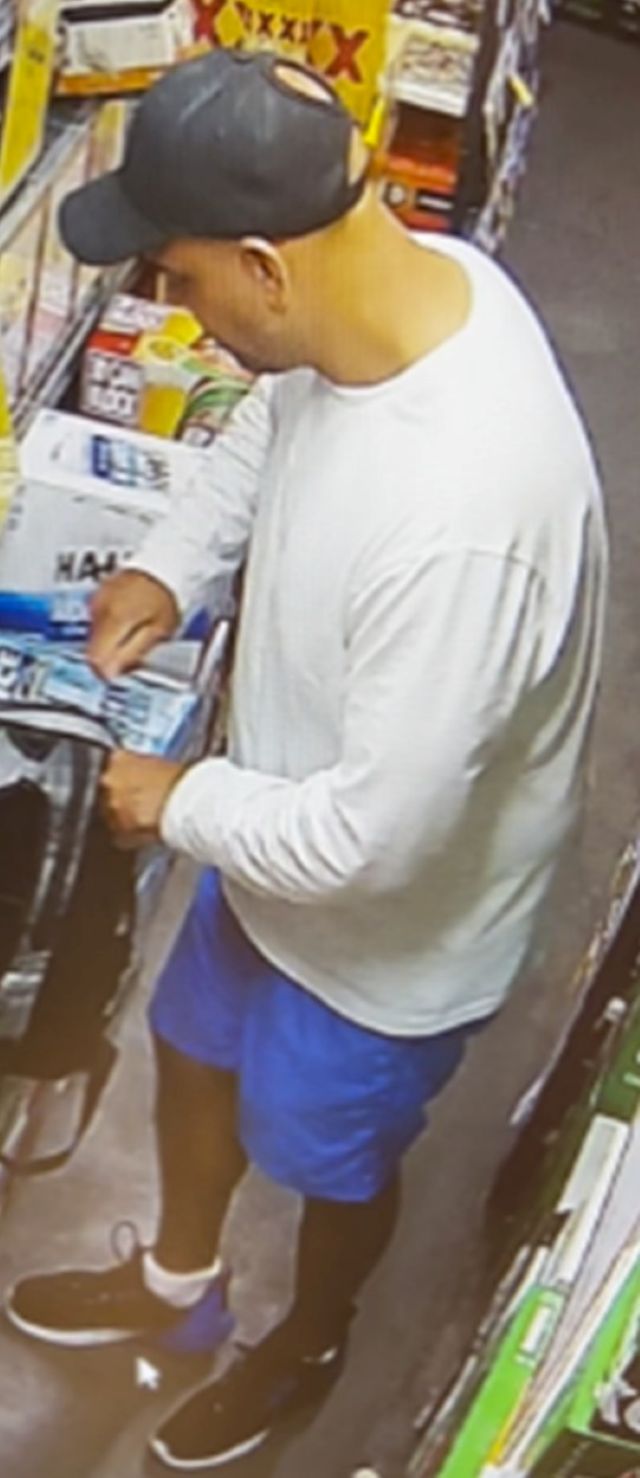Belgrave’s Sarah Clark boarded a plane headed for Chile, South America, in February this year with dreams of snapping breathtaking photographs and broadening her language skills through an international exchange program.
As a creative arts and Spanish student from Deakin University, she was thrilled to be accepted into a semester of exchange at Universidad del Desarrollo.
But with Covid worsening, Ms Clark only completed two weeks of her exchange on campus before the country went into quarantine for six months.
The trip of a lifetime transformed into a frightening and lonely year-long ordeal for Ms Clark, who remains stranded in Santiago without any financial assistance from Australian agencies.
Ms Clark’s friends and mother have created a GoFundMe fundraiser in hopes of raising funds to help with living costs, the hefty costs of a flight home and the necessary quarantine.
The Star Mail caught up with Ms Clark on December 8, two days before Santiago entered yet another total lockdown.
“I had an AirBnB booked when I arrived and the plan was to meet people in my classes and organise to share some accommodation but that didn’t happen because we only had two weeks on campus,” Ms Clark said.
Ms Clark had no option but to complete her international exchange program online over Zoom from her isolated apartment.
“I ended up having to leave the apartment I was in because I could not afford it anymore and did not want to be myself in quarantine for six months,” she said.
A professor at Universidad del Desarrollo put Ms Clark in touch with a family who were looking for someone to help care for their autistic son, Diego.
“I moved in with a family. I help their son who has autism for five hours a day in exchange for them feeding me and letting me use their electricity and internet because I just couldn’t afford to pay anymore,” she said.
“They don’t speak a word of English and my Spanish, it has improved but it is definitely not great, I don’t understand the language because it is very fast,” she said.
Ms Clark said that when the Federal Government encouraged overseas Australians to come home she had “no way of leaving”, with military police patrolling the streets and permission required to leave her residence.
“Thousands of Australian’s were told to come home but there was no way of getting anywhere, no way of passing the military, the government is in full control. It’s very different to Australia,” she said.
“Everything is documented, to leave the house you need a document. The borders were closed.
“Even people who went to the airport on the day of their flight that had it cancelled had to get permission to transition from the airport back to their hotel. It’s very strict, the military have guns, huge rifles.”
Ms Clark said during lockdown she has only been allowed out twice per week to get pharmaceuticals or groceries and had to apply for a “permission” to do so.
“I probably cry five times a week over watching the news or being scared about something. I feel like a little kid sometimes because I can’t call someone to come have a drink or watch a movie, it’s really difficult.”
Ms Clark said she contacted Casey MP Tony Smith and was advised to contact the Australian embassy in Chile, register on DFAT and apply for financial hardship through SmartTraveller.
She has been registered on DFAT since March and has visited the Australian embassy in Chile twice. She did not apply for the $2,000 SmartTraveller loan as her debt was “already growing daily”.
“There’s so many people that need to come home and want to come home, some in worse stages than others, some with kids, but nothing has been done,” she said.
MP Tony Smith said The Department of Foreign Affairs and Trade continues to provide consular support from its diplomatic network across South American and encourage those in need of assistance to reach out.
“Sarah’s situation in Santiago has been raised with my office by a family member. Her case has been raised directly with the Office of the Foreign Minister, Senator Payne and through them, the Department of Foreign Affairs and Trade, including the closest Australian Embassy in South America,” Mr Smith said.
Centrelink have also repeatedly denied Ms Clark’s claims.
“I applied for my Austudy in January and everything was a go ahead, I sent receipts for my flights so they knew it wasn’t a last minute decision to leave the country. But because I submitted my last paper when I was in Chile, they denied it,” she said.
Ms Clark contacted Deakin University for assistance and said they have given her a total of $1500 so far and gave her the option of booking her on the next flight available.
“I had to push and push. I still had my loans and things to pay for in Australia that are regular direct debits,” she said.
“Flights range from $5,000 to $23,000 and stop at five different countries, so all up its about a 56 hour flight,” she said.
“I’m anxious as it is and I don’t want to be putting myself in a position where I’m in another country which speaks another language with no money, no support and the stress of trying to work out how to swap my luggage on and off,” she said.
Ms Clark said it was not uncommon for flights to be cancelled or to stop in one country for indefinite periods of time waiting for more passengers. She is hopeful that cheaper and shorter flights through New Zealand will soon become available.
She is currently an illegal in Chile as her student visa recently expired. She has applied for a working visa but is yet to be approved.
Ms Clark’s bestfriend of 20 years and the creator of the GoFundMe campaign, Kirilly Pollock said the way our government has treated her friend is “appalling”.
“We’ve had to go thru all these lockdowns but everyone overseas, it’s not just Sarah – there’s families, they’ve just been forgotten to be honest,” she said.
The GoFundMe campaign can be found at https://gf.me/u/y95t9g.

